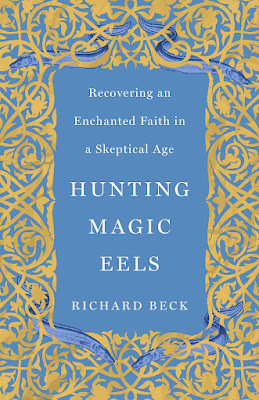That said, I do think that talk of angels points toward our epistemological limits, and that it is very healthy to be reminded of those limits. The very nature of rationality is to create a closed system. Angels keep the system open, vulnerable to outside interruptions. As Rowan Williams observes in his book Tokens of Trust:
God has made what we can see and manage and what we can't see and can never manage, a universe some of which we can get a grasp of and some of which we can't. This isn't a recommendation not to try to understand, but simply a reminder that not everything is going to be made sense of from our point of view. We don't get to the end of being baffled and amazed. I sometimes think that this is the importance of talking about angels in Christian teaching. Odd as it may sound, thinking about these mysterious agents of God's purpose, who belong to a different order of being, can be a least a powerful symbol for all those dimensions of the universe about which we have no real idea. Round the corner of our vision things are going on in the universe, glorious and wonderful things, of which we know nothing. We're so used to sentimentalizing and trivializing angels--they are often reduced to Christian decorations, fairy godmothers almost (as in most of the extraordinary flood of books about angels in recent years). But in the Bible angels are often rather terrifying beings occasionally sweeping across the field of our vision; they do God strange services that we don't fully see; they provide a steady backdrop in the universe of praise and worship. They are great 'beasts,' 'living creatures,' flying serpents burning with flames, carrying the chariot of God, filling the Temple in Jerusalem with bellows of adoration, echoing to one another like whales in the ocean. Those are the angels of Isaiah and Ezekiel--anything but Christmas card material. And sometimes a human form appears to give a message from God and something in the event tells the people involved that this is a moment of terror and truth, and they recognize that they have met an angel in disguise.
Now whether or not you feel inclined to believe literally in angels--and a lot of modern Christians have a few problems with them--it's worth thinking of them as at the very least a sort of shorthand description of everything that's 'round the corner' of our perception and understanding in the universe--including the universal song of praise that surrounds us always. If we try and rationalize all this away, we miss out on something vital to do with the exuberance and extravagance of the work of God, who has made this universe not just as a theatre for you and me to develop our agenda, but as an overwhelming abundance of variety and strangeness.


